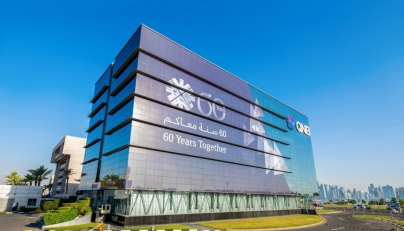Business
QNB Egypt Reports Solid Financial Growth for First Half of 2025

QNB Egypt, a subsidiary of QNB Group, has reported robust financial results for the first half of 2025, underscoring the Group’s strong financial standing in the region. As of June 30, 2025, QNB Egypt achieved a consolidated net profit of EGP 15.1 billion, a notable increase of EGP 1.322 billion or 10% compared to the same period in 2024. This performance reflects the effectiveness of QNB Group’s strategy and its successful expansion across international markets.
The bank’s standalone net profit reached EGP 14.8 billion. Additionally, the total loans and advances portfolio grew by EGP 42 billion, reaching EGP 407 billion, marking an 11% growth compared to December 2024. Customer deposits also saw a positive trend, totaling EGP 700 billion at the end of June 2025, which represents an increase of EGP 20 billion or 3% since December 2024.
Strategic Growth and Market Leadership
Commenting on these impressive financial results, Heba Al-Tamimi, Senior Executive Vice President of QNB Group Communications, emphasized the importance of strategic diversification. She stated, “Our continued success is built on solid foundations supported by the strategic diversification of our services across different geographies. This enhances our ability to adapt and seize promising opportunities.”
Mohamed Bendier, CEO of QNB Egypt, echoed this sentiment, noting that the financial performance indicators reveal significant growth across all business sectors. Bendier remarked, “These results are a direct reflection of the strong performance of QNB Group, confirming our leadership in the Egyptian banking sector and contributing to achieving a larger market share.”
Total consolidated assets for QNB Egypt rose to EGP 844 billion as of June 30, 2025, an increase of EGP 24 billion or 3% since December 2024. The bank also maintained a strong capital adequacy ratio of 24.3%, a testament to its prudent credit policies. The non-performing loan ratio stood at 5.23%, with a provision coverage ratio for substandard loans reaching 107%.
Expanding Branch Network
These positive results highlight the effectiveness and flexibility of QNB Egypt’s executive policies and procedures, which have bolstered its competitiveness and market share within Egypt. The bank’s branch network has expanded to 236 branches, including a recently opened branch in New Alamein City. This growth strategy aligns with QNB Group’s objective of enhancing its service delivery and customer reach across the nation.
As QNB Egypt continues to build on its strong performance, the Group remains focused on achieving sustainable growth and delivering long-term value to customers and shareholders alike.
-

 Sports2 months ago
Sports2 months agoNetball New Zealand Stands Down Dame Noeline Taurua for Series
-

 Entertainment2 months ago
Entertainment2 months agoTributes Pour In for Lachlan Rofe, Reality Star, Dead at 47
-

 Entertainment3 weeks ago
Entertainment3 weeks agoNew ‘Maverick’ Chaser Joins Beat the Chasers Season Finale
-

 Sports2 months ago
Sports2 months agoSilver Ferns Legend Laura Langman Criticizes Team’s Attitude
-

 Sports1 day ago
Sports1 day agoEli Katoa Rushed to Hospital After Sideline Incident During Match
-

 Politics1 month ago
Politics1 month agoNetball NZ Calls for Respect Amid Dame Taurua’s Standoff
-

 Entertainment2 months ago
Entertainment2 months agoKhloe Kardashian Embraces Innovative Stem Cell Therapy in Mexico
-

 World3 months ago
World3 months agoPolice Arrest Multiple Individuals During Funeral for Zain Taikato-Fox
-

 Sports3 months ago
Sports3 months agoGaël Monfils Set to Defend ASB Classic Title in January 2026
-

 Entertainment1 month ago
Entertainment1 month agoTyson Fury’s Daughter Venezuela Gets Engaged at Birthday Bash
-

 Sports1 month ago
Sports1 month agoHeather McMahan Steps Down as Ryder Cup Host After Controversy
-

 World2 weeks ago
World2 weeks agoSevere Winds Hit New Zealand, Over 100 Flights Canceled











